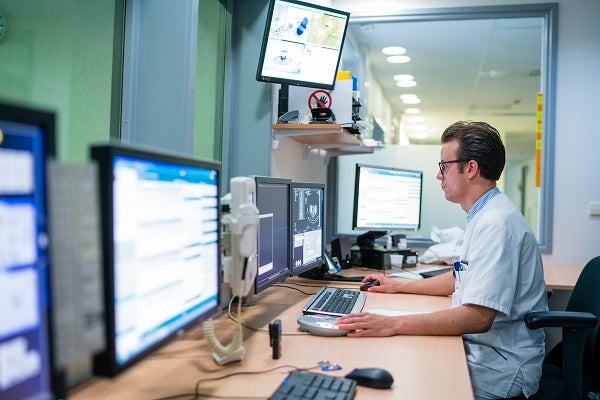On June 15th and 16th, the STOPSTORM consortium coordinated by the UMC Utrecht met virtually to discuss early project progress. The project, which officially started on May 1st, will begin researching the use of radiotherapy in treating cardiac arrhythmias. Patients who suffer from life-threatening ventricular tachycardia (VT) are often treated with medication and the implantation of an implantable cardioverter defibrillator that can correct a rapid heart rate with an electric shock. In cases of recurrent arrhythmias that do not respond adequately to regular therapy, patients may undergo invasive catheter ablation. The aim of the consortium, consisting of 31 partners across 8 European countries, is to investigate the option of radiotherapy-ablation for the 30%-50% of patients whose symptoms persist after catheter ablation. The treatment, which is also used in lung oncology, consists of a high dose of radiation administered in a single session.
Radiation-oncologist Joost Verhoeff is leading the project from the UMC Utrecht. He says: “Since 2014, this treatment has already been offered at several institutions. Unfortunately, the effects have not been properly monitored everywhere. Together with the consortium, we are compiling a large dataset of several hundred patients in order to obtain a good overview of the results.” The main objective of the STOPSTORM consortium is to create a European validation cohort to determine efficacy and safety in a large population of patients with ventricular tachycardia. The information also helps to gain insight into which dose should be administered and how. Expert center Harteraad connects, empowers and represents patients in the project.
STOPSTORM is European research funded with an EU Horizon 2020 grant of €7.1 million.
This project has received funding from the European Union’s Horizon 2020 research and innovation programme under grant agreement No 945119.
For more information visit http://www.stopstorm.eu/ and follow us on Twitter (@stopstormEU) and Linkedin

